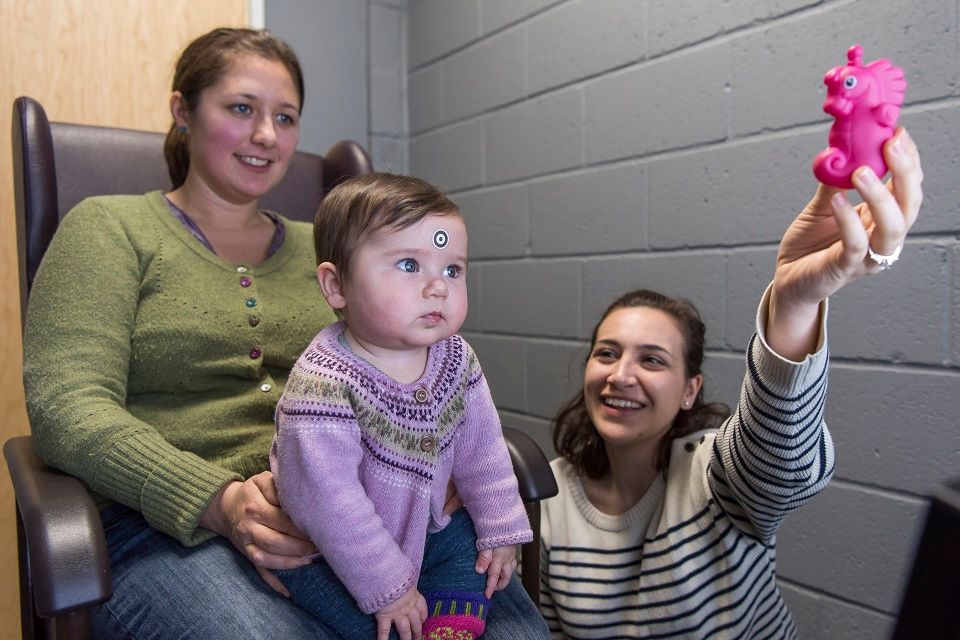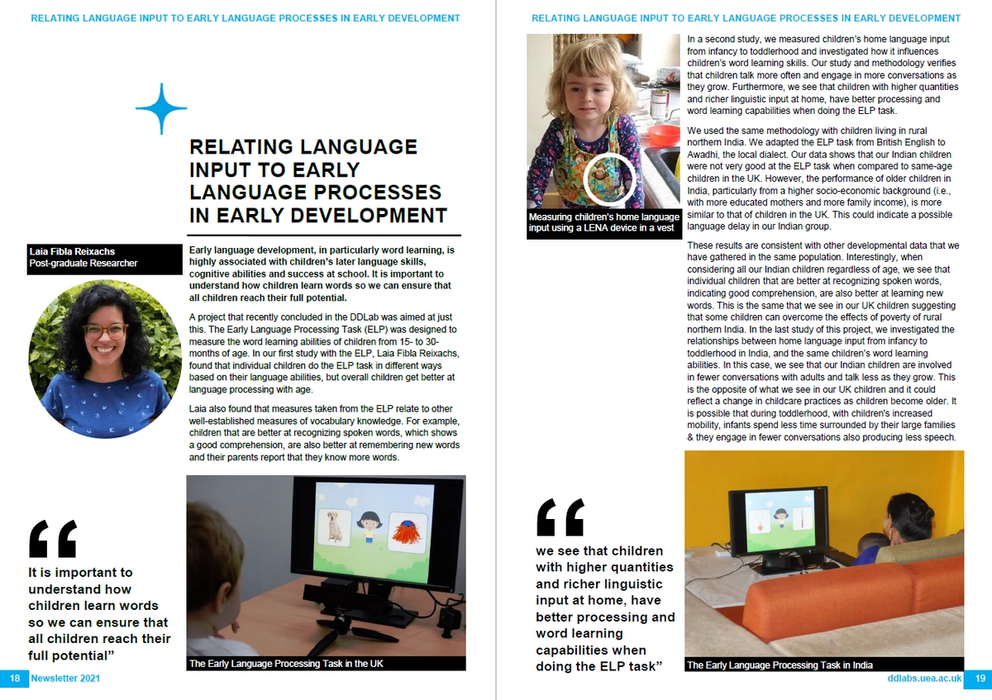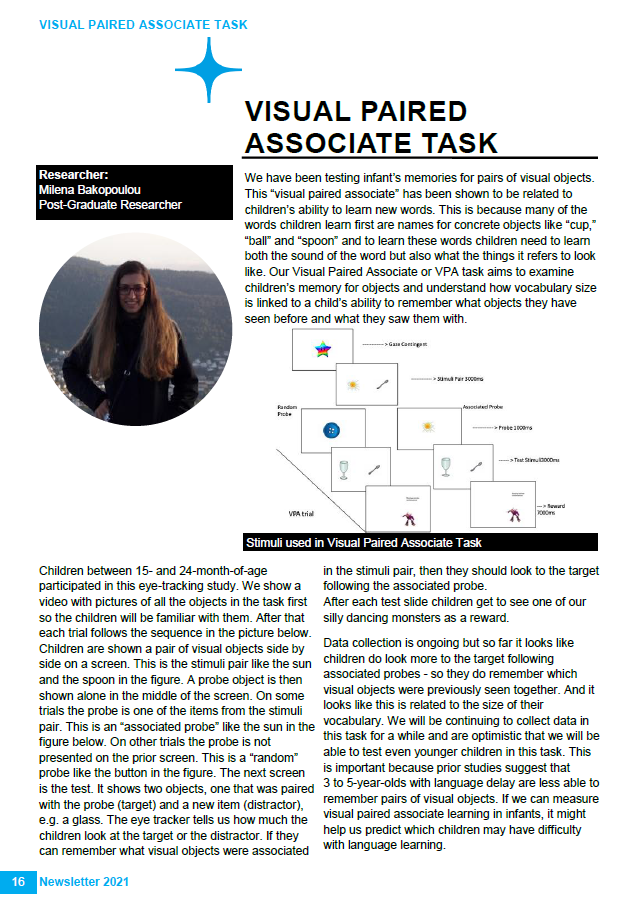The Dynamics of Visual Attention and Word Learning
Learning a word is much more complex than it might at first appear. It requires many different behaviours (looking, listening, pointing), and is supported by multiple perceptual and cognitive processes (attention, memory, categorisation). And word learning is extended in time; a child can respond to their name from 4 months of age, but will not usually say their first word until 12 months, and will be adding words to their vocabulary for many years to come. Explanations of early word learning must bring together processes of visual attention, visual looking and learning, processes for tracking of what things are where in the world and linking the right perceptual features together, and processes for the formation and updating of mappings between words and referents. Critically, such explanations must be dynamic – able to capture how these processes work together as children behave in the moment and how they change over learning and development.

The goal of this project is to test the first formal theory of early word learning that integrates understanding of how we perceive objects and things in the world, and word learning both in the minutes of an individual naming instance and the days, weeks and years of learning the many names for things in a young child’s vocabulary. Multiple individual experiments provide information on how children’s attention to novel things and growing word knowledge interact and change from 12-months to 3-years and beyond. We use what we learn from these studies to build and test a computer model of the process. In the future we hope this model will help us to understand what goes wrong when children are slow to learn words and language, and what we can do to help.


Our research is funded by:
National Institutes of Health
Publications:
Word-Object Learning via Visual Exploration in Space (WOLVES): A neural process model of cross-situational word learning. AA Bhat, JP Spencer, LK Samuelson. Psychological Review
Toward a Precision Science of Word Learning: Understanding Individual Vocabulary Pathways. LK Samuelson. Child Development Perspectives 15 (2), 117-124
Learning Words in Space and Time: Contrasting Models of the Suspicious Coincidence Effect. GW Jenkins, L Samuelson, WD Penny, J Spencer. Cognition
